Vocabulary Building Math Worksheets for 6-Year-Olds
7 filtered results
-
From - To
Unlock your child’s potential with our Vocabulary Building Math Worksheets for 6-Year-Olds. Designed to combine essential math skills with key vocabulary enhancement, these worksheets offer a fun and engaging way to strengthen your child’s understanding of mathematical concepts. Featuring colorful illustrations and interactive exercises, children will enjoy learning addition, subtraction, geometry, and more while expanding their math-related language. Perfect for both classroom and home activities, our resources help young learners build confidence and a solid foundation for future math success. Begin the journey to improved math literacy today with Kids Academy’s expertly crafted worksheets.


Matching: Classifying Toys by Size Worksheet


Fairy Tale Worksheet: Count and Classify with Rapunzel
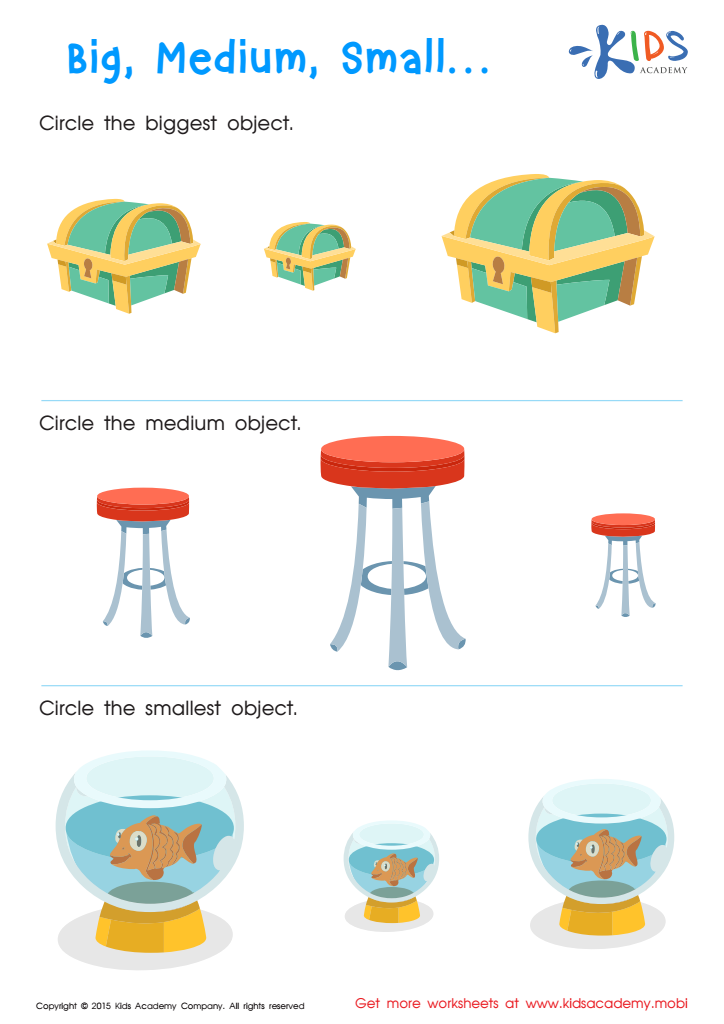

Big Medium Small Worksheet
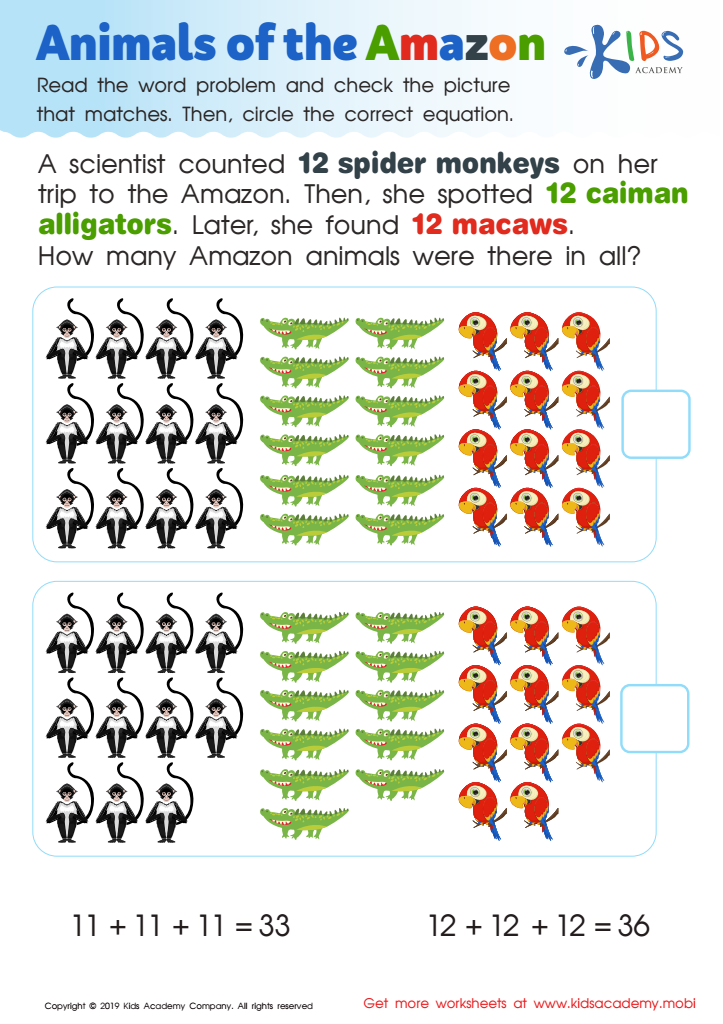

Animals of Amazon Worksheet
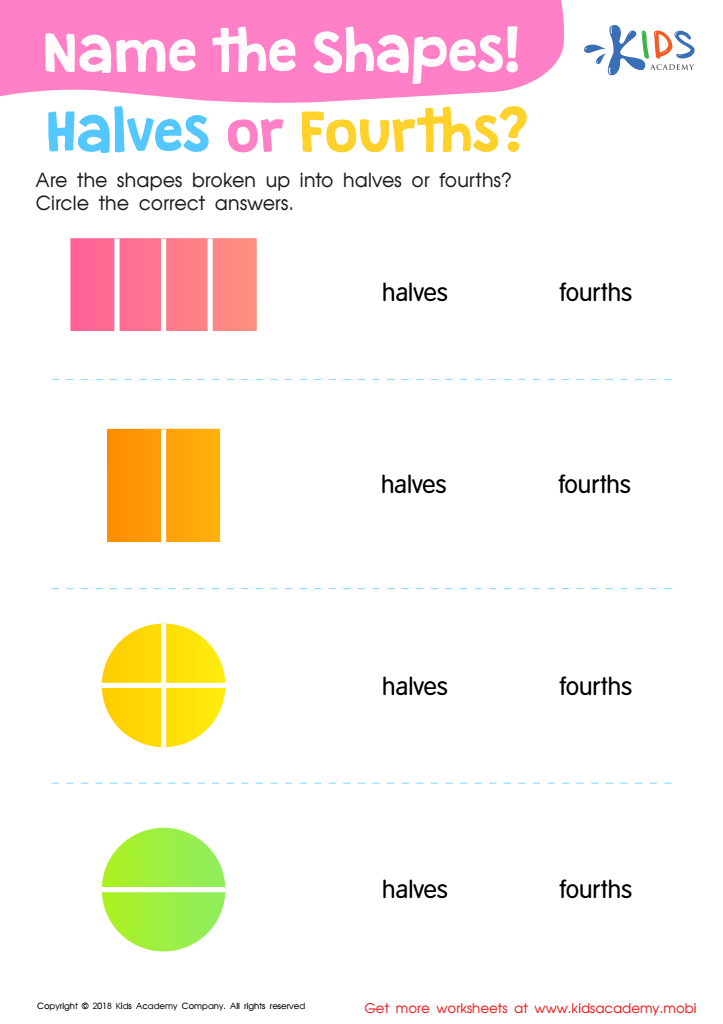

Name the Shapes Halves or Fourths? Worksheet
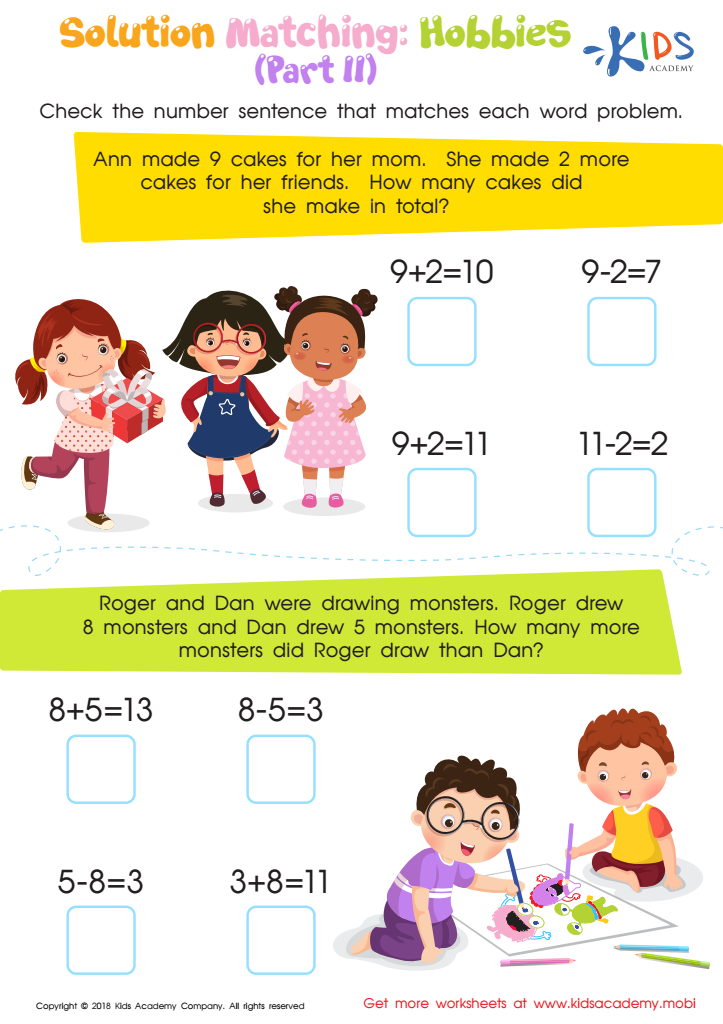

Solution Matching: Hobbies. Part 2 Worksheet
Vocabulary building in math for 6-year-olds is essential for several reasons. Firstly, it lays the foundation for all future mathematical learning. At this age, children are expanding their lexical understanding, and introducing them to the vocabulary of math helps create a strong, conceptual base. Words like "add," "subtract," "equal," and "greater than" turn abstract concepts into something tangible that students can grasp and apply.
Moreover, early math vocabulary helps develop critical thinking and problem-solving skills. When a child understands math terms, they're better equipped to analyze and approach a problem strategically. This equates to more than just rote memorization; it teaches children to think logically and methodically, skills that are beneficial across all areas of learning and daily life.
Math vocabulary also fosters effective communication of mathematical ideas. When teachers and parents use precise terms, children can express their thoughts clearly, understand instructions better, and participate more fully in classroom discussions and activities. This encourages engagement and reinforces a child’s confidence in their mathematical abilities.
Ultimately, investing time in vocabulary building at this crucial developmental stage makes math enjoyable and understandable, leading to a positive attitude that can thwart math-related anxiety and contribute significantly to a child’s long-term academic success.

 Assign to My Students
Assign to My Students

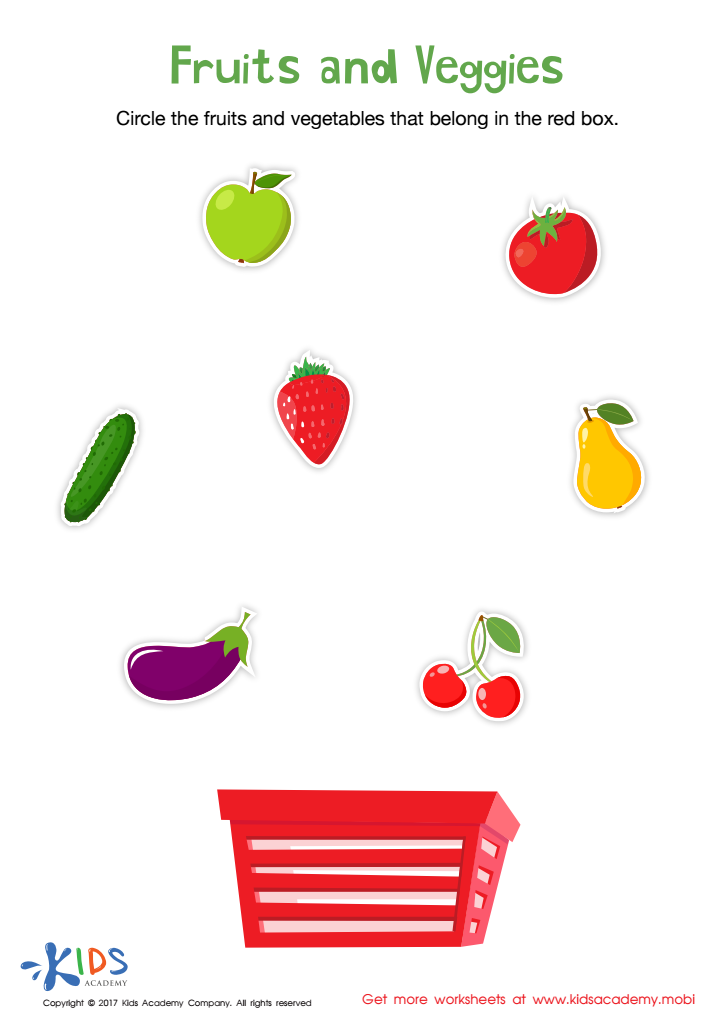





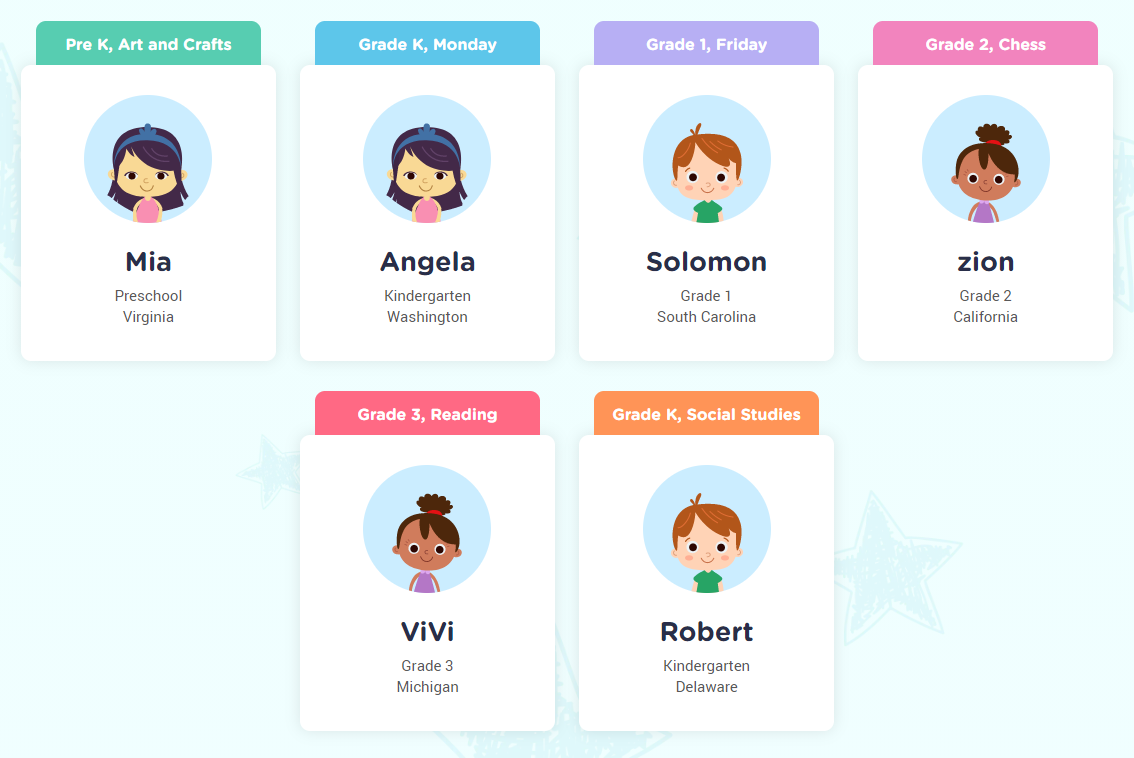


.jpg)












